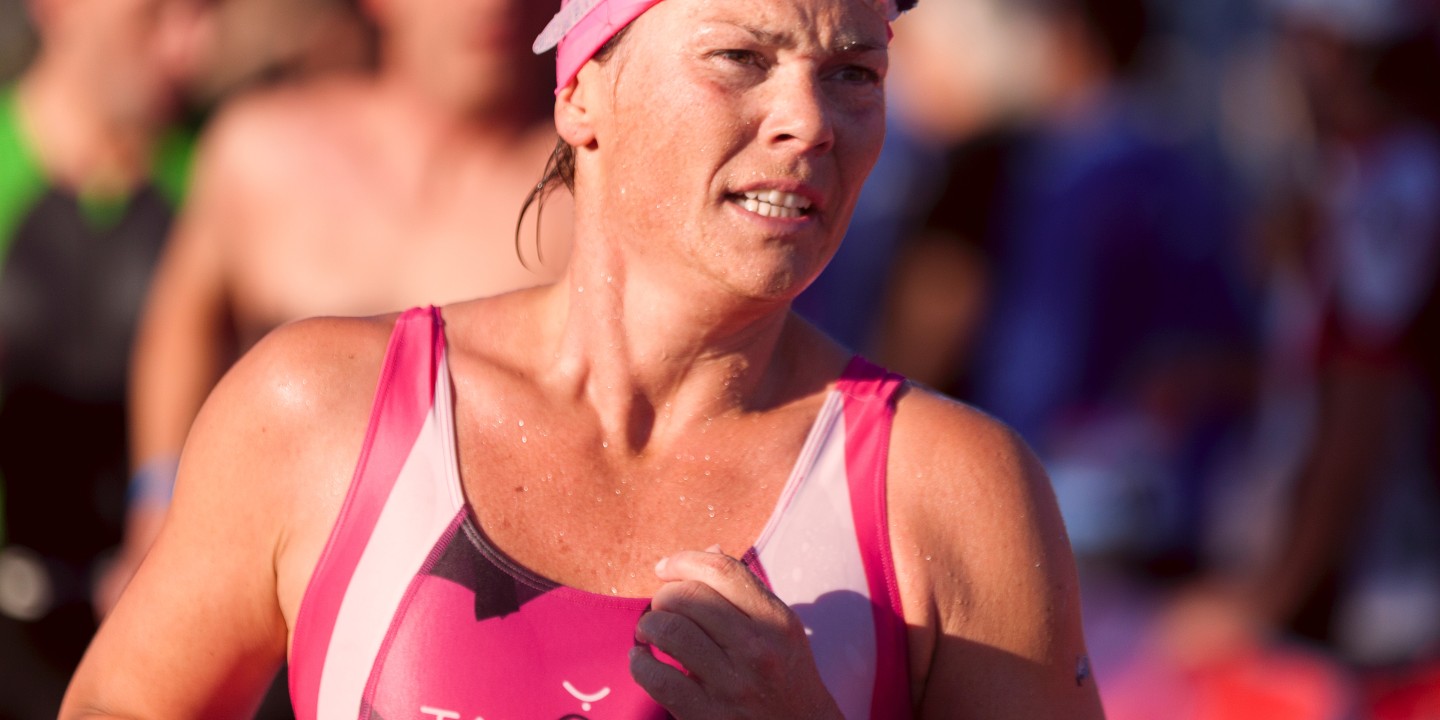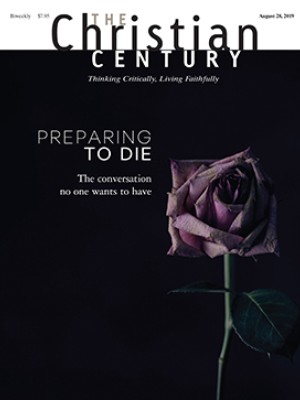I don’t have cancer—at least there’s no indication of such from recent scans and tests. But I sometimes think I live with cancer, surrounded as I am by so many parishioners who live with the anxiety of rogue cells and unwanted tumors messing with their bodies. Over the past three decades of ministry, I’ve met hundreds of people who’ve taught me what it’s like to lose the sense of personal autonomy, discover how much food can taste like metal, poke awkwardly around websites like wigs.com, and continually learn about new cocktails that have nothing to do with happy hour. I’ve also learned how people with cancer often speak of their disease.
Far and away the favorite metaphor for addressing cancer involves language of combat. One’s body is the battlefield. The oncology unit serves as a base camp. The fight becomes one of total war. When the obituary finally appears online and the eulogy is composed, we learn that Jane “lost her battle with cancer.” All this aggressive warrior language may predate Richard Nixon’s 1971 declaration of “war against cancer,” but it certainly has blossomed in popularity since.
Read our latest issue or browse back issues.
Several problems come to mind with this warfare imagery. First, it leaves the patient with only one of two possible outcomes—victory or defeat. That seems hardly right. Death becomes the personal failure of those patients who (evidently) didn’t fight valiantly enough.
For six years of my life, I drove past the Richard and Annette Bloch Cancer Survivors Park in Kansas City on my way to work. That fancy park, built in celebration of Richard’s lung cancer remission, always confused me. What signal did it send to those with cancer who aren’t lucky enough to ever hear their oncologist pronounce their illness to be in remission?
Second, warrior language falsifies the true nature of cancer, making the disease appear to bend or bow to patients who demonstrate special resolve and conquer those who don’t. One of the unintended consequences of this thinking is that it allows us to believe we’re meant to live interminably were it not for cancer showing up in some people and altering that arrangement.
Third, I’ve seen countless people balk at palliative care as their life winds down, fearful they’ll be perceived as “throwing in the towel” or “giving up the fight.” This is not healthy.
A clear alternative to viewing cancer as a fight would be to understand it as a struggle, much the way climbing a 14,000-foot peak or running a half marathon is not so much a fight as a struggle. We should silence the battle metaphors when speaking of cancer and be at home with our bodies and whatever obstacles they face.
In scripture, when Jacob wrestled through the night at the Jabbok River, it wasn’t a fight that preoccupied him; it was an exhausting struggle. Whether he was contending with God or with some dark side of his own past, there was no clear victor or loser. All we learn in the aftermath is that Jacob was both scarred and whole, limping but blessed. He came face-to-face with God through his struggle and walked away with a new identity.
I’m not convinced anybody loses to cancer. But I’ve noticed all kinds of people who seem to beat cancer just by the way they live—with faith and spirit more powerful than even the worst tumor.
A version of this article appears in the print edition under the title “A struggle, not a fight."







